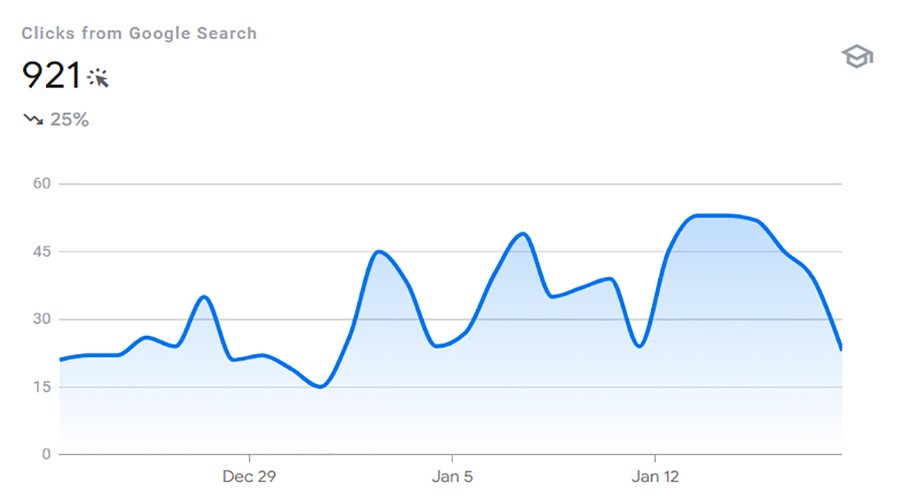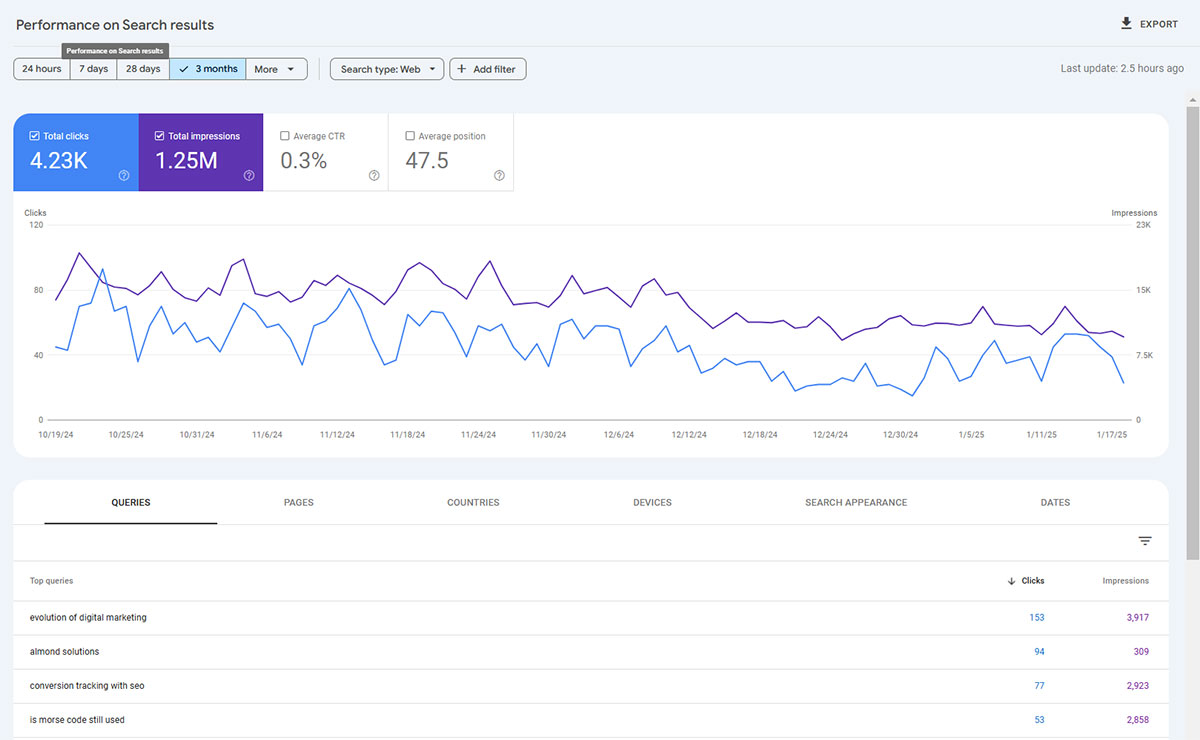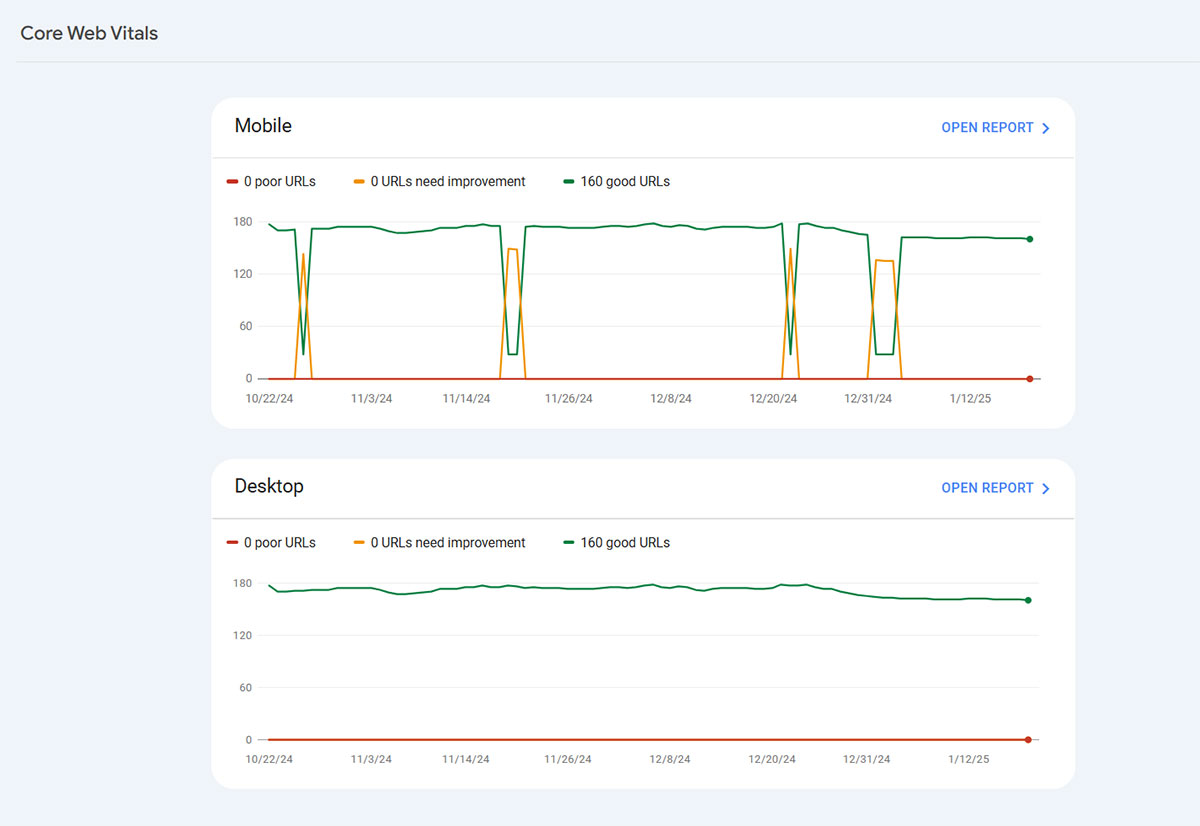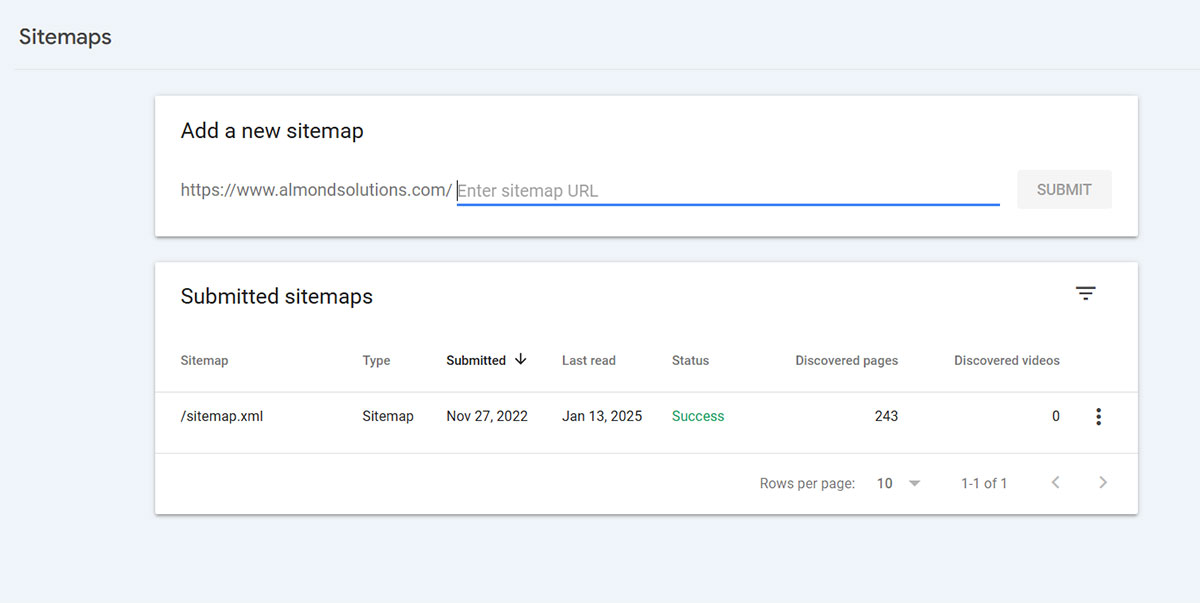Over 100,000 marketers in our community! Let's talk about your technology and marketing events/webinars in our community. Learn More
Is Google Search Console Important for SEO
Originally published: January 21, 2025 07:49:14 AM, updated: January 21, 2025 08:02:32 AM

The short answer is YES! Google Search Console (GSC) is a powerful tool that helps you monitor, maintain, and troubleshoot your site's presence in Google Search results. Here's how you can use it to optimize your SEO:
1. Monitor Search Performance

Performance Report: This report provides insights into the total number of clicks, impressions, click-through rate (CTR), and average position of your site in Google Search results. Analyzing these metrics lets you identify which keywords drive the most traffic and which pages perform well or poorly.
Actionable Tips:
- Identify high-performing pages and optimize them to maintain or improve their ranking.
- Look for keywords with high impressions but low CTR, and adjust your meta titles and descriptions to make them more appealing.
- Focus on pages with low CTR or average positions and enhance their SEO by optimizing content, adding internal links, or improving page speed.
2. Check for Crawl Errors and Fix Issues
Coverage Report: This report identifies any indexing issues, such as pages that are blocked, not found (404 errors), or have redirects. Addressing these issues ensures that Google crawls and indexes your site correctly.
Actionable Tips:
- Resolve 404 errors by redirecting broken links to relevant pages or creating new content.
- Use the "URL Inspection" tool to verify if pages are indexed correctly.
- Fix any issues with your robots.txt file or meta tags that might prevent Google from indexing essential pages.
3. Optimize for Mobile
Mobile Usability Report: Google prioritizes mobile-friendly websites since most search traffic comes from mobile devices. This report highlights any mobile usability issues on your site.
Actionable Tips:
- Address issues such as text that is too small to read, clickable elements that are too close together, or content that is wider than the screen.
- Ensure your site is responsive and loads quickly on mobile devices.
4. Improve Page Speed

Core Web Vitals Report: Google uses signals like Core Web Vitals (LCP, FID, and CLS) to assess the user experience. This report identifies performance issues affecting the speed and stability of your pages.
Actionable Tips:
- Fix slow loading times by optimizing images, leveraging browser caching, or minifying CSS and JavaScript files.
- Use the "PageSpeed Insights" tool to receive detailed recommendations.
5. View and Optimize Backlinks
Links Report: This report shows you the most linked-to pages on your site, as well as the domains linking to you. Backlinks are an important ranking factor in SEO.
Actionable Tips:
- Analyze the quality of links pointing to your site and disavow any harmful or low-quality backlinks.
- Reach out to authoritative websites for additional high-quality backlinks.
6. Disavow Harmful Links
Disavow Tool: If you receive links from spammy or low-quality sites, you can use the Disavow tool to tell Google to ignore those links when assessing your site's authority.
Actionable Tips:
- Regularly audit your backlink profile to identify and disavow harmful links that could negatively impact your SEO.
7. Use Structured Data
Enhancements Report: GSC provides insights into structured data, such as schema markup used on your site. Structured data helps search engines better understand your content and can result in rich snippets or enhanced listings in search results.
Actionable Tips:
- Implement schema markup (e.g., for reviews, products, articles) to improve visibility in search results.
- Use the Structured Data Testing Tool to check for errors and ensure your structured data is correctly implemented.
8. Submit Sitemaps

Sitemaps: Ensure that Google has access to your site's most important pages by submitting a sitemap. This helps Google crawl and index your content more effectively.
Actionable Tips:
- Regularly update your sitemap as you add new pages or make significant changes to your site.
- Submit an XML sitemap via GSC to ensure that all important URLs are indexed.
9. Monitor Manual Actions
Manual Actions Report: If Google applies a penalty to your site (e.g., due to violating their webmaster guidelines), it will appear here.
Actionable Tips:
- Regularly check for manual penalties, address any issues that caused them, and request reconsideration if necessary.
10. Track Search Queries and Keywords
Performance Report (Queries):This report displays the keywords that bring users to your website, along with their impressions, clicks, and CTR.
Actionable Tips:
- Focus on optimizing high-value keywords (those with high impressions and clicks) to increase traffic further.
- Target long-tail keywords with lower competition that can still drive relevant traffic.
11. Check for International Targeting Issues
International Targeting Report: If you're targeting different regions or languages, use this report to ensure your site is optimized for the correct geographic areas.
Actionable Tips:
- Use hreflang tags to specify language and regional targeting if you have a multilingual or multinational audience.
Using Google Search Console with Other SEO Tools
Integrating Google Search Console (GSC) reports into your SEO strategy can greatly enhance your efforts.
Exporting Data from Google Search Console
- Manual Export: GSC allows you to export performance data (such as clicks, impressions, CTR, and average position) directly to a CSV file or Google Sheets. Most SEO tools can import these files for deeper analysis.
- API Integration: Many SEO tools (e.g., SEMrush, Ahrefs, Screaming Frog) support direct integration with GSC via its API, automating the process of pulling data into your SEO tool.
Benefits of Using GSC Data in SEO Tools
- Keyword Analysis: SEO tools can combine GSC's keyword performance data with other metrics, such as search volume and competition, for more comprehensive insights.
- Backlink Analysis: Pair GSC's referring domains and backlinks with SEO tools to analyze link quality and enhance your link-building strategies.
- Content Optimization: Use GSC reports on search queries and underperforming pages to optimize content with advanced tools focusing on keyword density, readability, and structure.
- Technical SEO: With integration, GSC data on crawl errors, mobile usability, and page experience can be cross-verified with an SEO tool's audits to implement more effective fixes.
- Tracking Progress: GSC provides precise search performance metrics, while SEO tools offer visual dashboards and advanced trend-tracking capabilities.
Common SEO Tools That Support GSC Integration
- SEMrush: Allows importing GSC data for keyword research, traffic analysis, and site audit comparisons.
- Ahrefs: Enriches keyword tracking and site audit reports using GSC data.
- Screaming Frog: Integrates GSC data for crawl analysis, displaying organic clicks and impressions alongside technical crawl data.
- RankMath/Yoast (for WordPress): Syncs GSC data to suggest SEO improvements.
- Google Data Studio: Create custom SEO dashboards by integrating GSC data for a more visual representation.
Best Practices
- Set Goals: Utilize GSC data to establish measurable goals for your SEO campaigns, such as increasing CTR or targeting specific query positions.
- Segment Data: Break down GSC data by device, location, or query type for targeted optimizations.
- Monitor Changes: Regularly sync data to track changes in rankings, impressions, or clicks after implementing SEO strategies.
- Combine with Other Tools: Cross-reference GSC data with Google Analytics or third-party SEO software for a comprehensive view of performance.
Conclusion
By regularly checking these reports and making necessary adjustments, you can utilize Google Search Console to enhance your site's performance in search results.
Join over 100,000 SEO and Google Ads experts. We provide a community to help you engage and learn from industry experts and influencers. Join Now
Get Media Coverage for Your Business!
Get published on Google News, AP News, Benzinga, over 100+ NBC, FOX, ABC & CBS affiliate sites and more.



